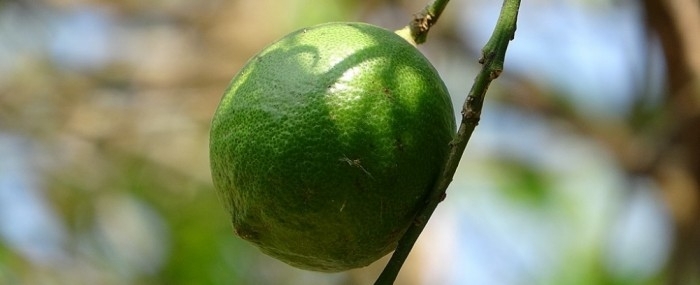

A solution developed by a startup based in São Paulo state combines fungicidal action and delayed ripening. The researchers who founded the startup took part in the 17th edition of the PIPE High-Tech Entrepreneurial Training Program (photo: Wikimedia)
A solution developed by a startup based in São Paulo state combines fungicidal action and delayed ripening. The researchers who founded the startup took part in the 17th edition of the PIPE High-Tech Entrepreneurial Training Program.
A solution developed by a startup based in São Paulo state combines fungicidal action and delayed ripening. The researchers who founded the startup took part in the 17th edition of the PIPE High-Tech Entrepreneurial Training Program.

A solution developed by a startup based in São Paulo state combines fungicidal action and delayed ripening. The researchers who founded the startup took part in the 17th edition of the PIPE High-Tech Entrepreneurial Training Program (photo: Wikimedia)
By Elton Alisson | Agência FAPESP – N&P Smart, a startup in Araraquara, state of São Paulo, Brazil, is developing nanoparticles to extend the shelf life of fruit and flowers. The product is being developed as part of a project supported by FAPESP via its Innovative Research in Small Business Program (PIPE).
“There are already products on the market that either delay fruit ripening by means of ethylene inhibitors or are fungicides. The solution we’re developing combines antifungal action with ethylene inhibition, cutting fruit processing costs and stages. In addition, our nanotechnology is sustainable and biodegradable,” says Ana Carolina Nazaré, one of the founders of N&P Smart and principal investigator for the project. “The nanoparticles are made of a natural biodegradable polymer extracted from the shells of crustaceans such as shrimps, lobsters and crabs, which protects against microorganisms like fungi, combined with natural products.”
The initial trigger for development of the solution was a talk with a Brazilian exporter of Tahiti limes (Citrus latifolia Tanaka) who told the startup’s founders about losses due to spoilage of the fruit while it was being taken by ship to Europe.
“The conversation with this citrus grower gave us several ideas,” Nazaré recalls. “We took them as a basis for our first business model, which involved using nanoparticles to extend the shelf life of Tahiti limes.”
When they took part in the latest edition of the PIPE High-Tech Entrepreneurial Training Program, which ended on May 13-14, the researchers realized from interviews with citrus growers that the product could benefit other fruit crops and the ornamental flower industry.
“Interviews with flower producers, for example, suggested to us that they also face problems with infestation by fungi while cut flowers are in cold storage,” Nazaré says.
They plan to develop a product specifically for cut flowers and to conduct further experiments to measure the fruit shelf life extension achieved by their solution compared with those already on the market.
“In this first phase of the project, we’ll continue to focus on the product’s Tahiti lime application, with which we’ve already had promising results, but we’ll also be looking out for new market opportunities, starting with the flower industry. The legislation applicable to conservation solutions is less strict for flowers than fruit,” she says.
Investment showcase
Achieving product-market fit, which ensures that the product satisfies strong market demand, is one of the main goals of the training program, offered by PIPE-FAPESP since 2016 (more at: agencia.fapesp.br/23097). In those five years, it has trained representatives of more than 350 startups supported by PIPE in a wide array of segments and with outstanding growth potential.
Participants in this edition, which was the 17th, included researchers who founded startups in novel materials and processes, information technology (IT), data science, agritech, edtech, healthtech, foodtech, biotech and beautytech.
“It’s called a training program, but it’s much more than that because it enables researchers with projects supported by PIPE Phases 1 and 2 to make contact and establish very strong relationships with the market,” says Marcelo Nakagawa, a member of FAPESP’s Research for Innovation Area Panel and one of the coordinators of the program.
The participants are encouraged during the program to interview 100 prospective customers, partners, and users of the technology they are developing, and to use the information gleaned thereby to enhance their business models.
“The main aim of the PIPE entrepreneurial training program is to help the startups supported by FAPESP bring novel technologies to market and develop them sustainably,” says Marcelo Caldeira Pedroso, also a member of FAPESP’s Research for Innovation Area Panel and one of the coordinators of the program.
Besides participants in the training program, the audience for the closing session of its 17th edition included researchers interested in becoming entrepreneurs and submitting projects to PIPE, as well as representatives of companies in search of partnerships and prospective investors.
“Investment in Brazilian startups is on a roll,” Nakagawa says. “It reached an all-time high in 2020, and it’s still pretty strong this year. Many investors are looking at these business opportunities [deriving from projects supported by PIPE].”
A recording of the event is at: https://fapesp.br/14903.
Republish
The Agency FAPESP licenses news via Creative Commons (CC-BY-NC-ND) so that they can be republished free of charge and in a simple way by other digital or printed vehicles. Agência FAPESP must be credited as the source of the content being republished and the name of the reporter (if any) must be attributed. Using the HMTL button below allows compliance with these rules, detailed in Digital Republishing Policy FAPESP.





